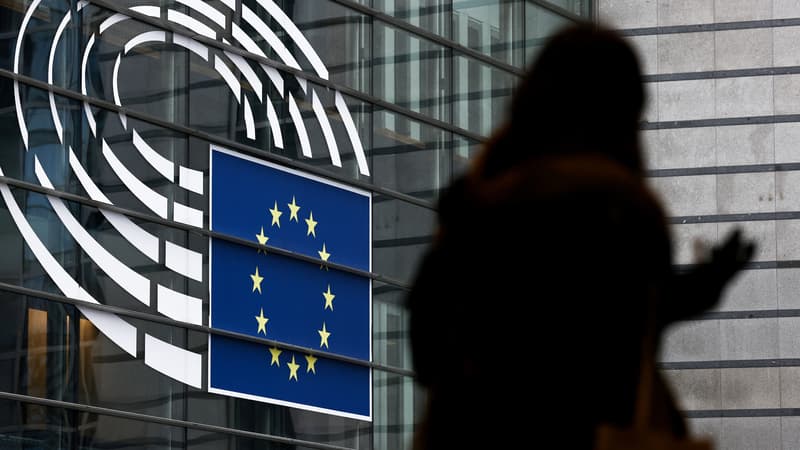Validated in March under the French presidency of the European Union, the “carbon tax” at the borders has been the subject since Monday of final talks between the European Parliament and the Member States to finalize the modalities of this unprecedented mechanism that must be signed an end to the free “rights to pollute” assigned to European industrialists.
The objective of this system is to green industrial imports by charging for the carbon emissions associated with their production. With the sky-high price per tonne of CO2, the idea is to avoid “green dumping”, which would see manufacturers shift their production outside of Europe, while encouraging the rest of the world to adopt European standards.
adjustment
However, the popular name “carbon tax” is misleading: it is not really a tax, but a border “adjustment” (“CBAM”), which consists of applying the criteria of the European carbon market to imports, where the EU industrialists are obliged to buy “rights to pollute”.
The importer will have to declare the emissions directly linked to the production process, and if these exceed the European standard, acquire an “emission certificate” at a CO2 price in the EU. If there is a carbon market in the exporting country, you will only pay the difference.
The Commission and the states advocate a gradual application of the mechanism over ten years from 2026. MEPs call for a gradual implementation between 2027 and 2032. Revenue collection could be entrusted to the states or to a new centralized European authority, another pending issue.
The proposal of the European Commission, collected by the States, points to imports in the five sectors considered the most polluting (steel, aluminum, cement, fertilizers, electricity). The European Parliament has asked that the list be extended (hydrogen, plastics, chemical products). According to Brussels, the inclusion of organic chemicals would be extremely complex.
Gradual elimination of free quotas
Currently, European manufacturers are assigned free allowances that cover part of their emissions, to support their competitiveness against imports that are not subject to the same environmental criteria. Thus, the equivalent of 98,500 million euros was distributed between 2013 and 2021, according to the NGO WWF. As “border adjustment” gains momentum, free allowances distributed to affected sectors will be phased out.
One crucial point: by treating imports and local production equally, Brussels believes it is staying within the rules of the World Trade Organization (WTO) and countering accusations of “protectionism”. But the schedule is still hotly debated. MEPs are calling for a very gradual phase-out, allowing companies to continue receiving 50% free allowances in 2030, before their complete disappearance in 2032. States want to keep them until 2035.
The issue will only be resolved by the end of the week in the context of other carbon market negotiations, warns Pascal Canfin, chairman of the European Parliament’s Environment Committee. Environmental NGOs claim that these free quotas, while they exist, are accompanied by drastic conditions in terms of green investments.
Export help
Another controversial point: Parliament wants European industrial sites, under certain conditions, to continue to receive free allowances for their production destined for exports to non-EU countries without comparable carbon prices. States remain reluctant to any “export discounts”.
“We don’t have any mechanism to ensure that a company that invests in decarbonization, which is expensive, doesn’t find itself at a disadvantage in the global market,” argues Pascal Canfin. “Without a viable alternative solution, European exports will suffer from competition”, while energy costs are already suffering, alarms Aegis Europe, an alliance of about twenty industries (steel, fertilizers, etc.). According to her, such aid would be compatible with the rules of the WTO.
This is refuted by Pascal Lamy, former director general of the WTO and director of the Jacques Delors Institute. “It is not compatible because the CBAM is not a tax, it is very different from a VAT on which we would grant exemptions to exporters. It would be very dangerous to risk litigation over that,” he explained.
“Indirect” emissions
MEPs want to include “indirect” emissions generated by electricity used to produce imported products. An idea initially rejected by the Commission and the States that considered tracking too complex. The expected income, which could exceed 14,000 million euros per year, will feed the general budget of the EU, helping to repay the post-Covid recovery plan.
NGOs are calling for them to be reserved strictly for decarbonisation and aid to affected developing countries. With the extension of the European standards to the rest of the world, “the goal is, however, that this device no longer generates income as soon as possible,” recalls Pascal Lamy.
Source: BFM TV


